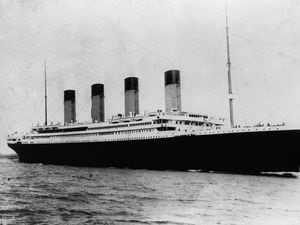Star comment: New PM must prioritise our creaking social care system
Dementia places a huge burden on those who are left to care for sufferers.

It is common sense that those who are active in mind and body are likely to remain healthier longer. A new report suggests leading an “intellectually, socially and physically active lifestyle” may help protect against dementia and other cognitive decline.
Of course, that won’t apply to all and some will find themselves unfortunate to succumb, despite the best of intentions and leading wholesome, active lives.
Even so, the message is that we should at least help ourselves reduce the risks of dementia. Challenging the brain is good for us, even if that means taking on a daily crossword or sudoku puzzle.
Of course many of us will go on to get dementia regardless. We are an ageing population, and with that comes an increasing number of people who find their cognitive skills diminish.
Dementia places a huge burden on those who are left to care for sufferers. While we should of course be looking for preventative measures and cures, we should also as a society ensure that the support is there for those who suffer and for those that care.
Our social care system is creaking at the seams and one of Boris Johnson’s big promises to fix it went unfulfilled. If anything, social care is in much worse shape now than it was in 2019.
The National Care Association, which represents small and medium-sized care providers, had a 5.9 per cent vacancy rate in May 2021. By this April, it had reached 10 per cent. That means there are fewer beds available for those who need them most. Soon we will have a new Prime Minister – that person must fix this crisis.
Many of us are lucky to live in an area where the local Lions Club organise an annual mass screening for prostate cancer. It ensures that hundreds of men with no symptoms are checked to ensure there are no signs of prostate cancer.
It is the biggest killer cancer in men, yet many believe you can only be suffering it if symptoms come on. In fact, most sufferers have no symptoms at all. The word should be spread about the importance of regular checks for men, just as breast and cervical screening happen for women.
Prostate cancer is a disease where early treatment is frequently effective. The issues are often created when people react too slowly to stop the cancer from spreading. Society has made some progress in destigmatising the need for men to have a check-up, as women do. More, however, must be done to normalise checks.





